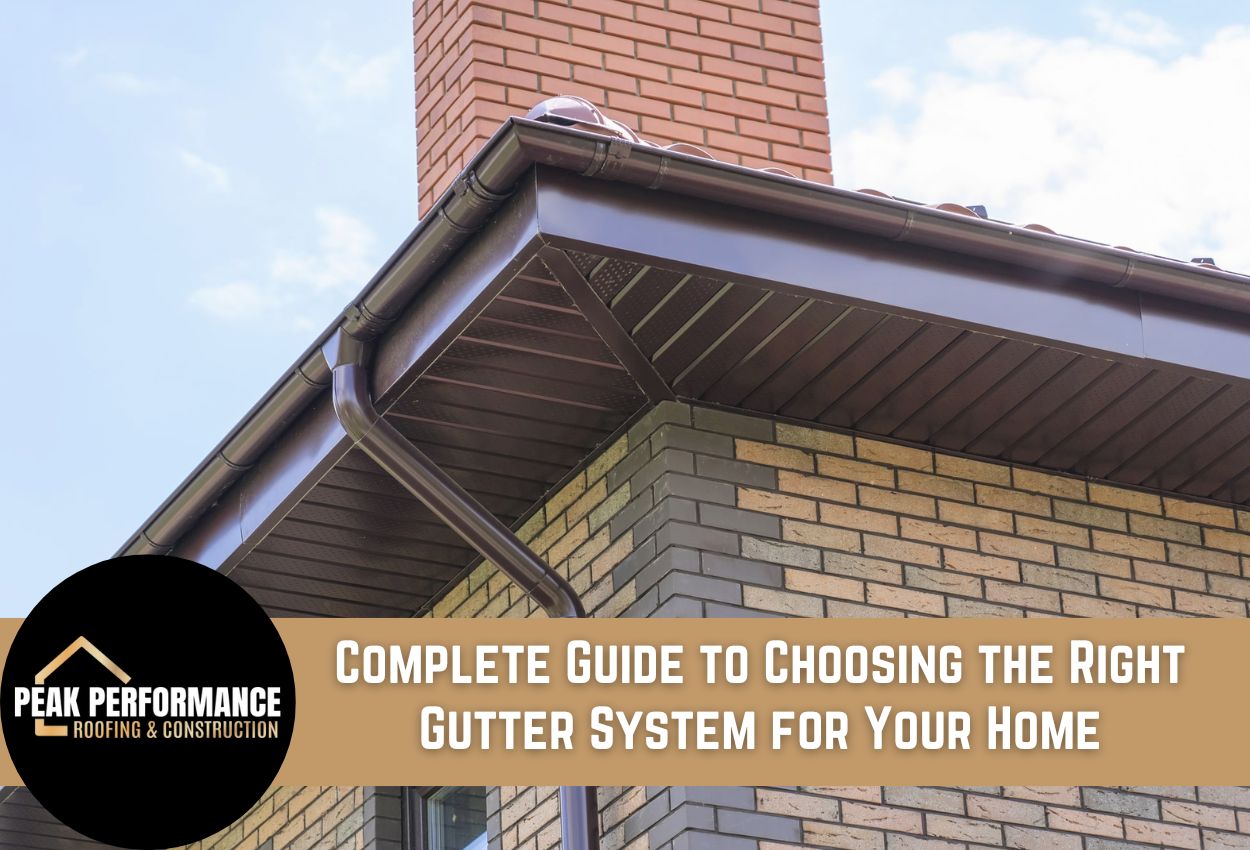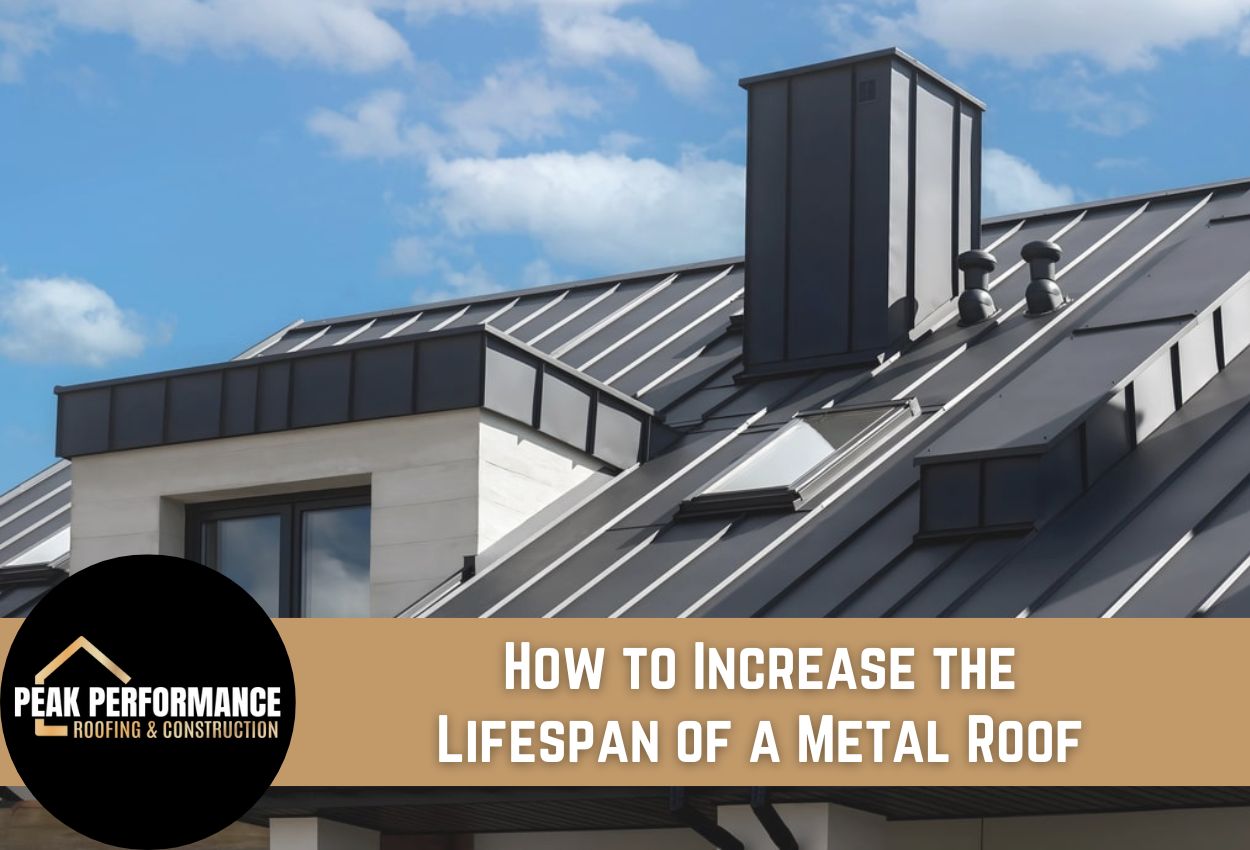The Modern Homeowner’s Guide to Synthetic Roofing Materials

Synthetic roofing materials have revolutionized the options available to Tulsa homeowners looking to protect their investments with durable, attractive roofing solutions. These innovative alternatives to traditional roofing materials combine advanced technology with aesthetic appeal, offering solutions that stand up to Oklahoma’s challenging weather while maintaining their appearance for decades.
From polymer roofing materials that mimic the classic look of slate to composite roofing options that deliver exceptional durability without the weight and installation challenges of natural materials, today’s synthetic options provide versatility for virtually any architectural style. Synthetic roof shingles also resist damage from the severe storms, intense heat, and occasional hail that test roofing systems throughout the year.
Homeowners seeking alternatives to cedar shakes can now choose synthetic versions that capture the warmth and texture of wood without concerns about rot, insects, or fire susceptibility. Similarly, synthetic slate roofing benefits include significantly lighter weight while maintaining the elegant appearance of natural stone. These advancements have made premium roofs accessible to more homeowners while offering improved performance characteristics.
As these materials continue to evolve, understanding the differences between various synthetic roofing options is important for homeowners to make the best choice for their property.
Understanding Synthetic Roof Shingle Options
Synthetic roof shingles offer Tulsa homeowners a remarkable range of durable and attractive options that can withstand Oklahoma’s unpredictable weather patterns. Modern polymer-based shingles are engineered with advanced resins that resist impact damage from hail, a common concern in our region. These materials are typically reinforced with fiberglass for enhanced strength while maintaining a lighter weight than traditional materials.
Rubber composite shingles excel in flexibility, allowing them to expand and contract during Tulsa’s temperature swings without cracking or splitting. Many homeowners appreciate that these synthetic options require minimal maintenance compared to asphalt or wood shingles. Polymer shingles combine multiple plastic materials to create a product that can withstand UV exposure for decades without fading or deteriorating.
One of the most appealing aspects of synthetic roofing materials is their visual versatility. Manufacturers now produce synthetic slate that captures the dimensional texture and color variations of natural stone without the associated weight that often requires structural reinforcement. Similarly, synthetic cedar shake alternatives deliver the rustic charm of wood without concerns about rot and constant resealing.
These products are available in numerous profiles, textures, and colors, allowing Tulsa homeowners to achieve their desired aesthetic while benefiting from materials that are specifically designed to perform in our challenging climate.
Composite Roofing Options: Engineered for Oklahoma’s Extreme Weather
Composite roofing systems represent the pinnacle of roofing technology and are specifically engineered to handle unpredictable and extreme weather. These synthetic roofing materials combine multiple components to create products that withstand everything Oklahoma throws at them, from scorching 100-degree Fahrenheit summer days to winter ice storms and the high winds that come with severe thunderstorms.
The advanced composition allows these materials to remain flexible yet strong during rapid temperature changes that cause other roofing materials to crack or split. Most quality composite roofing materials contain UV inhibitors that prevent degradation and color fading even after years of intense Oklahoma sunshine. During our notorious hailstorms, these materials demonstrate superior impact resistance compared to traditional asphalt shingles.
The lifecycle benefits are impressive. While traditional asphalt shingle roofs typically last 15 to 20 years in our climate, properly installed composite roofing systems often last 30 to 50 years. This extended performance comes with minimal maintenance requirements. The synthetic cedar shake alternatives and polymer-based options maintain their appearance without the splitting, warping, or moss growth that affects natural materials. Additionally, most composite roof shingles can be recycled at the end of their useful life, with some manufacturers offering take-back programs that keep these materials out of landfills. For homeowners calculating long-term value, composite roofs deliver exceptional return on investment through reduced replacement frequency and lower repair costs throughout their lifespan.
Polymer Roofing Solutions: Technology at the Forefront
Today’s polymer roofing materials represent cutting-edge technology designed specifically to overcome the challenges faced by Tulsa homeowners. Similar to composite options, advanced synthetic formulations incorporate specialized UV inhibitors that prevent degradation from Oklahoma’s intense sun exposure. The molecular structure of these polymers includes stabilizers that maintain material integrity despite years of temperature fluctuations between our scorching summers and freezing winters.
Impact modifiers engineered into modern roofing materials provide exceptional resistance to the hail damage that frequently affects Tulsa properties. These specialized additives allow the material to absorb impact energy without cracking or breaking. Equally impressive are the color technologies that keep polymer roofing materials looking new years after installation, with specialized pigments bonded directly into the material rather than simply coated on the surface.
Beyond performance, today’s polymer roofing solutions offer significant environmental advantages. Many products feature reflective properties that reduce heat absorption, potentially lowering cooling costs during Oklahoma’s hot months. The energy efficiency extends to manufacturing processes that require less energy than traditional materials. For Tulsa homeowners seeking both performance and environmental responsibility, today’s polymer roofing options deliver on both fronts.
Synthetic Cedar Shake: Traditional Appearance with Modern Performance
Synthetic cedar shake roofs provide Tulsa homeowners with the rustic, dimensional appeal of natural wood shakes without the vulnerabilities that make traditional cedar problematic in Oklahoma’s climate. These advanced alternatives closely mimic the varied textures, natural color variations, and shadow lines of authentic cedar, often fooling observers from ground level.
Unlike natural cedar shakes that are vulnerable to wildfire risks, synthetic versions offer significantly improved fire resistance ratings. Most quality products meet Class A fire ratings, providing crucial protection during our hot, dry summers. These materials also eliminate concerns about insect infestation, particularly termites that frequently target wood roofs in our region.
Installation of synthetic cedar shake is more straightforward than traditional wood, requiring fewer specialized tools and techniques. Most systems include precise interlocking mechanisms that enhance wind resistance, which is a critical advantage during Oklahoma’s storm season. For historical Tulsa properties or architecturally distinctive homes seeking to maintain period-appropriate aesthetics, synthetic cedar provides an authentic appearance with modern performance.
Maintenance requirements are minimal compared to natural cedar, which typically needs regular treatments and eventual replacement as it weathers. Synthetic alternatives maintain their appearance and durability with occasional cleaning, freeing Tulsa homeowners from the ongoing maintenance cycle while delivering decades of protection and curb appeal.
Synthetic Slate: Premium Protection Without the Premium Price
Synthetic slate has become a game-changer for Tulsa homeowners seeking the sophisticated appearance of natural slate without its inherent drawbacks. These innovative roofing materials capture the distinctive texture and dimensional shadowing of quarried slate while eliminating concerns about excessive weight that often requires expensive structural reinforcement. For Oklahoma homes, this lightweight alternative installs more efficiently and reduces stress on your home’s structure.
Unlike natural slate that can crack during Oklahoma’s hail storms, synthetic slate roofing benefits include remarkable impact resistance, which is a bonus during our region’s hail season. Most synthetic slate products maintain their integrity even in golf ball-sized hail that would damage traditional materials. The composite roofing durability extends to wind resistance as well, with many products rated for winds exceeding 110 mph.
The long-term value of synthetic options is especially compelling for Tulsa property owners. These materials typically carry warranties ranging from 30 to 50 years, with minimal color fading over time. Many insurance companies recognize the superior performance of synthetic slate, potentially qualifying homeowners for policy discounts. The reduced maintenance requirements – no broken tiles to replace, no moss growth to remove – ensure that the elegant appearance you choose today will continue protecting your home through decades of Oklahoma’s weather.
Are Synthetic Roofing Materials Right for Your Tulsa Home?
When looking for synthetic roofing material for your Tulsa home, begin by evaluating your home’s architecture — Colonial homes often pair beautifully with synthetic slate, while Craftsman styles complement synthetic cedar shake alternatives. Consider your neighborhood as well. Some areas have established aesthetic patterns that your roof should harmonize with while still meeting your performance needs.
In Tulsa, your roof faces everything from intense summer heat to freezing winter precipitation and potential severe storms. Look for synthetic roofing materials with high impact ratings for hail resistance and wind warranties exceeding 110 mph. South-facing roof sections will experience more UV exposure, making fade-resistant options especially valuable for long-term appearance.
Working with qualified Tulsa roofing contractors who specialize in synthetic materials is crucial for maximizing your investment. Ask potential contractors about their specific experience with your chosen synthetic roof shingles, their manufacturer certifications, and examples of local installations you can examine. Proper installation techniques vary between different types of synthetic roofing materials, and incorrect application can void warranties and compromise performance.
Request verification that your contractor follows manufacturer-specific installation guidelines, from underlayment selection to ventilation requirements that help your synthetic roofing perform optimally in Tulsa’s variable climate.
Discover Synthetic Roofing Materials with Peak Performance Roofing & Construction in Tulsa
If you’re considering upgrading or replacing your roof, now’s the perfect time to explore the innovative solutions provided by Peak Performance Roofing & Construction. Specializing in synthetic roofing materials, we offer a variety of options that combine durability, aesthetic appeal, and superior performance.
Whether you’re interested in the classic elegance of synthetic slate or the rustic charm of synthetic cedar shake, our expert team is here to guide you through each step, ensuring you make the best choice for your Tulsa home. With our advanced polymer roofing solutions, you can enjoy a beautiful, long-lasting roof that withstands the elements and enhances your home’s energy efficiency.
Don’t wait to protect and beautify your home. Give us a call today at (918) 694-1483 to learn more about your synthetic roofing options with Peak Performance Roofing & Construction.



